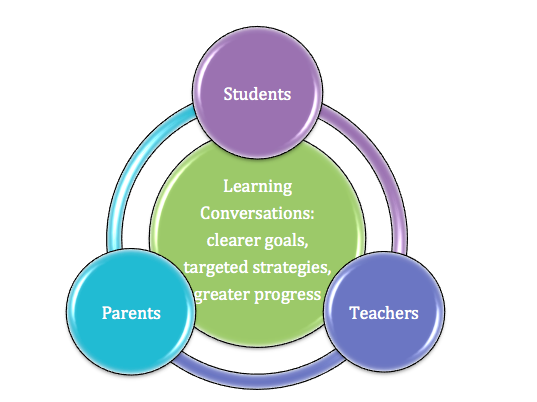Formal Learning Conversations are an important element of our reporting process and build on partnerships with teachers, students and families to ensure successful learning. These conversations are occurring in all classes, from now until the end of the term. We invite all Parents and Caregivers to participate in these Learning Conversations. You should have already received a booking sheet from your child’s class teacher.
We call them Learning Conversations rather than interviews because they are about sharing information and strategies rather than just giving information. They are about understanding students’ strengths and weaknesses, setting goals and seeking a team approach to building learning success. Some teachers will involve students in this process at this time; others will involve students later in the year or in other ways. Our mission is to create more opportunities for all students to develop the skills and dispositions to put their most focussed energy into their learning. As they get older, students are expected to more clearly articulate their learning needs and commitment to improvement.
The next formal phase of our report process will be written reports at the end of term 2.
Our students who require adjustments for learning due to learning difficulties or disabilities all have individual learning plans. Teachers will be reviewing these plans with families over the next term. These conversations may occur during the regular Learning Conversation or another meeting may be scheduled for this review. Identified students with disabilities who have a Negotiated Education Plan (NEP) will have official NEP review meetings, as we have done in the past, scheduled in week 4 next term (23-25 April)
Increasingly you should find that communication with families is happening via digital spaces. Teachers will be communicating classroom learning intentions so you are aware of what students are learning in class. We are anticipating that this should support you in following up on learning through conversations and experiences at home.
Teachers are working out what form of digital communication best suits them and the class and are the administrators for these digital spaces. If you are not sure about the digital communications in your child’s class please ask the classroom teacher.


Leave a Reply